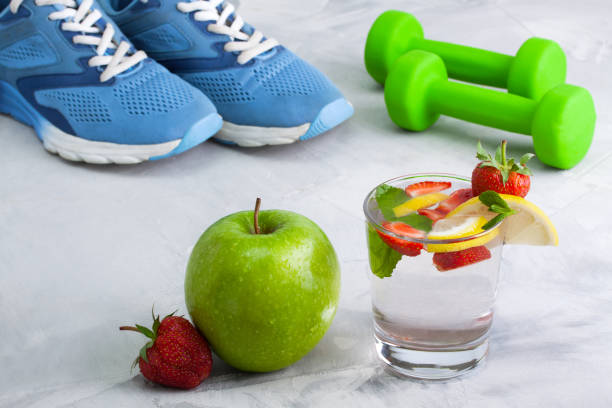Introduction
In the realm of sports and physical performance, hydration is a critical yet often overlooked factor. Proper hydration is essential not only for maintaining general health but also for optimizing athletic performance and recovery. Athletes, whether amateur or professional, need to understand the science behind hydration to achieve peak performance levels and avoid the detrimental effects of dehydration.

The Importance of Hydration
Water is fundamental to life, constituting about 60% of the human body. It plays a vital role in various physiological processes, including temperature regulation, joint lubrication, nutrient transport, and waste elimination. For athletes, maintaining an adequate level of hydration is crucial because even mild dehydration can impair physical and cognitive performance. Studies have shown that a loss of just 2% of body weight through dehydration can significantly reduce endurance, strength, and overall performance.
Physiological Role of Hydration in Sports Performance
During exercise, the body produces heat, and to dissipate this heat, it relies on the process of sweating. Sweat, composed primarily of water and electrolytes, helps cool the body through evaporation. However, excessive sweating can lead to substantial fluid loss. If these fluids are not adequately replaced, dehydration can occur, leading to a decrease in blood volume, which in turn reduces the efficiency of the cardiovascular system and muscle function.
Proper hydration helps maintain blood volume, allowing the heart to pump blood more effectively and delivering oxygen and nutrients to muscles more efficiently. This is particularly important in endurance sports where prolonged physical activity demands sustained cardiovascular and muscular function.
Signs and Symptoms of Dehydration
Recognizing the signs and symptoms of dehydration is crucial for athletes. Early signs include thirst, dry mouth, and dark urine. As dehydration progresses, symptoms can become more severe, including dizziness, fatigue, dry skin, rapid heartbeat, and in extreme cases, confusion and fainting. Understanding these signs helps athletes take timely measures to rehydrate and prevent further decline in performance and health.
Strategies for Optimal Hydration
Pre-Exercise Hydration
Starting exercise in a hydrated state is essential. Athletes should aim to drink about 500 ml (approximately 17 ounces) of water two hours before exercising. This allows time for any excess fluid to be excreted, ensuring the body starts in an optimal state of hydration. Consuming beverages with electrolytes can also be beneficial, particularly in hot and humid conditions where sweat loss is substantial.
Hydration During Exercise
The goal during exercise is to balance fluid intake with sweat loss to prevent significant dehydration. Athletes should drink small amounts regularly throughout their workout. For sessions lasting longer than an hour, sports drinks containing electrolytes and carbohydrates can help maintain energy levels and replenish lost electrolytes, thus sustaining performance and preventing hyponatremia (low blood sodium levels).
Post-Exercise Hydration
Rehydration after exercise is crucial for recovery. Athletes should aim to replace 150% of the fluid lost during exercise within a few hours post-exercise. This can be calculated by weighing themselves before and after exercise to determine sweat loss. Consuming beverages with electrolytes can aid in rapid rehydration by promoting fluid retention and replacing lost electrolytes.
The Role of Electrolytes in Hydration
Electrolytes such as sodium, potassium, and magnesium are essential for maintaining fluid balance, nerve function, and muscle contractions. During exercise, the body loses these electrolytes through sweat. Replenishing them is crucial to avoid muscle cramps, fatigue, and impaired performance.
- Sodium: Helps maintain fluid balance and nerve function. It is the primary electrolyte lost through sweat and is crucial for rehydration.
- Potassium: Important for muscle function and preventing cramps. Found in bananas, oranges, and sports drinks.
- Magnesium: Supports muscle function and energy production. A deficiency can lead to muscle cramps and fatigue.

Hydration and Different Types of Sports
Endurance Sports
In endurance sports like marathon running, cycling, and triathlons, maintaining hydration is critical due to the prolonged nature of these activities. Athletes in these sports often experience significant sweat loss, making it essential to have a strategic hydration plan that includes pre-hydration, regular intake during the event, and post-event rehydration.
Strength and Power Sports
In sports that rely on strength and power, such as weightlifting and sprinting, hydration is equally important. Dehydration can impair muscle strength, decrease anaerobic power, and increase the risk of injury. Hydration strategies in these sports focus on maintaining fluid levels to support short bursts of intense activity.
Team Sports
Team sports like soccer, basketball, and rugby involve both endurance and intermittent high-intensity efforts. Hydration strategies must consider the game’s demands, with frequent hydration breaks to ensure athletes remain hydrated throughout the match. Coaches and trainers play a crucial role in monitoring players’ hydration status and encouraging fluid intake.
Common Myths About Hydration
Myth 1: Thirst is an Accurate Indicator of Hydration
Relying on thirst alone to gauge hydration can be misleading. Thirst is a late indicator of dehydration, and by the time an athlete feels thirsty, they may already be experiencing a decline in performance. Regular fluid intake before, during, and after exercise is necessary to stay adequately hydrated.
Myth 2: Drinking Water is Enough for Hydration
While water is essential, it may not be sufficient for optimal hydration during prolonged or intense exercise. Electrolytes lost through sweat need to be replenished to maintain fluid balance and muscle function. Sports drinks or electrolyte supplements can be beneficial in these scenarios.
Myth 3: Overhydration is Not a Concern
Overhydration, or hyponatremia, occurs when there is an excessive intake of water without adequate electrolyte replacement, diluting the sodium levels in the blood. This condition can be life-threatening and highlights the importance of balanced hydration, including electrolyte replenishment.
Personalized Hydration Plans
Athletes have unique hydration needs based on factors such as body size, sweat rate, exercise intensity, and environmental conditions. Personalized hydration plans are essential for optimizing performance and preventing dehydration or overhydration. These plans should be developed based on individual sweat tests, dietary habits, and specific sports demands.
Technology and Hydration Monitoring
Advancements in technology have made it easier for athletes to monitor their hydration status. Wearable devices that measure sweat rate, electrolyte loss, and body temperature can provide real-time data, helping athletes adjust their hydration strategies accordingly. Smart water bottles that track fluid intake and remind users to drink are also becoming popular tools for maintaining hydration.
The Future of Hydration in Sports Science
Research in hydration and sports performance continues to evolve, with a growing focus on individualized approaches and advanced monitoring techniques. Future developments may include more sophisticated wearable technology, personalized hydration formulas, and deeper insights into how different fluids and electrolytes affect various aspects of performance.

Conclusion
Hydration is a cornerstone of athletic performance and overall health. Understanding the science behind hydration, recognizing the signs of dehydration, and implementing effective hydration strategies are vital for athletes at all levels. By staying properly hydrated, athletes can enhance their performance, recover more quickly, and reduce the risk of injury and illness.
Incorporating a balanced approach to hydration that includes adequate fluid intake, electrolyte replenishment, and personalized hydration plans will empower athletes to perform at their best. As the field of sports science advances, new tools and techniques will further refine our understanding and management of hydration, ensuring that athletes can achieve their peak potential in a safe and effective manner.



